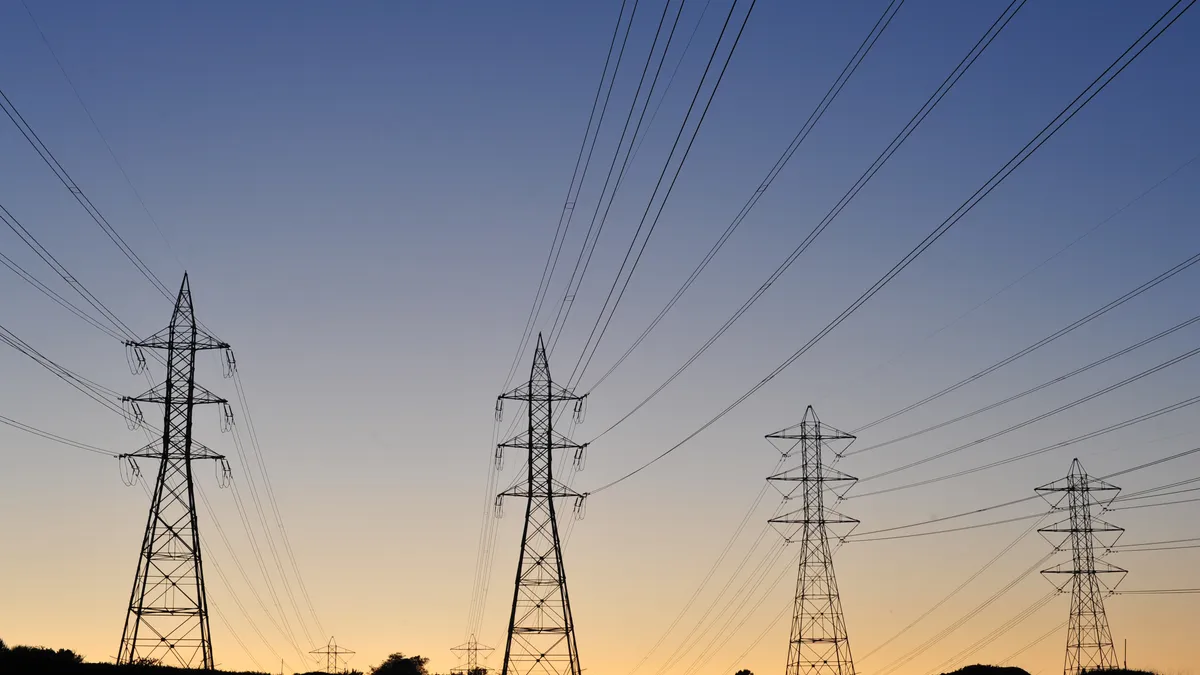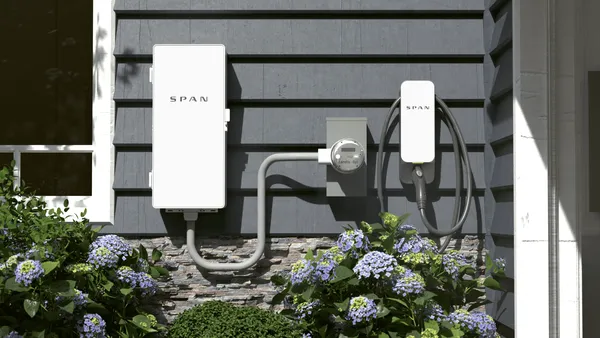Dive Brief:
- Massachusetts regulators on Sept. 30 launched an investigation into the management of National Grid, pointing to concerns regarding the utility's electric vehicle (EV) program, cybersecurity plan and management of its solar interconnection process.
- Solar advocates say National Grid's interconnection process has created delays that add significantly to project costs and drive customers away. Regulators say these interconnection issues could negatively impact 900 MW of solar projects.
- The decision rejected the bulk of National Grid's Phase II EV proposal, which included 17,700 level 2 and 300 direct current fast charging ports. Some aspects were approved, though the commission included staffing concerns for the program in its management audit.
Dive Insight:
Massachusetts regulators did not pull any punches in launching their investigation into National Grid leadership, pointing to "potential management problems through to the highest levels of the organization."
Regulators said the investigation will address National Grid's strategic planning processes; staffing decisions and the extent to which they affect the company’s "efficiency of operations and the productivity of its employees;" and broad potential management issues as well as issues related to the utility's relationship with National Grid USA Service Company (NGSC).
The investigation will examine the company's cybersecurity plan approach to IT investment, and concerns it is "reactive, uncoordinated, and has not been vetted to determine benefits Massachusetts ratepayers receive for the costs allocated to them."
NGSC is owned by National Grid and provides management, administrative, accounting, legal, engineering, information systems and other services to National Grid USA subsidiaries, including MECo and Nantucket Electric, according to the order.
The DPU said it has concerns regarding management of National Grid's Phase I EV and Phase II EV programs, and whether there are individuals working on both.
The DPU said it "appears that two different groups were involved in the development of the two phases of the EV Program. ... The Department expects a certain level of continuity in utility management and staffing, and particularly in programs like EV that tend to have a steep learning curve where effective program performance can benefit from gained experience."
The DPU said it also wants to examine concerns regarding National Grid's management of its interconnection process in light of an ongoing transmission study being performed in central and western Massachusetts which could delay the interconnection of affected solar projects totaling over 900 MW.
"Based on the record evidence, the delay could be years depending on the length of the study and the time needed to implement any necessary system upgrades," said regulators. "The company’s failure to meaningfully engage with the Department and stakeholders prior to the commencement of the [study] raises serious concerns about management decisions made at the company."
National Grid said it would use the review as a chance to make any necessary improvements.
"An external review provides us the opportunity to reinforce our commitment to continuous improvement," spokesperson Robert Kievra said in an email. "As we always do with our internal management reviews, we will seek to emerge from the process prepared to embed any critical learnings into our way of doing business."
Speaking Friday at the Society of Environmental Journalists annual conference in Fort Collins, Colorado, Sunrun Chief Policy Officer Anne Hoskins called the investigation "a huge deal."
"There have been huge delays," Hoskins said of National Grid's process to interconnect new solar projects. She pointed to requirements for multiple meters, difficulties communicating between community solar advocates and the utility, and delays.
"Everybody wants to talk about customer experience. This is a terrible customer experience," said Hoskins, adding that the delays drive up the cost of distributed solar significantly.
"In Australia, in Germany, the cost of putting up distributed solar is about $1/watt. It’s closer to $3/watt here and why? It’s because of interconnection delays [and] permitting delays," she said.
The investigation was included in a 600-page order finalized last month, which increases National Grid's base distribution rates by about $90 million due to investments in clean energy technologies and improvements to grid reliability and resilience.
The DPU's order did allow National Grid to implement three aspects of its EV Phase II program, including a residential off-peak charging rebate, a fleet advisory services plan and co-location of fast charging with solar and/or energy storage. But by eliminating National Grid's proposal for thousands of new charging ports, regulators ultimately reduced National Grid’s base revenue request by approximately $41.8 million.
The DPU's decision means National Grid cannot file another rate case until the end of 2023. The utility's new rates take effect in November.
Gloria Gonzalez contributed to this reporting.















